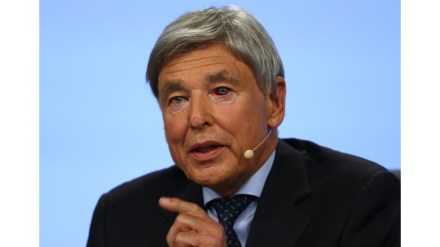Austrian executive Peter Brabeck-Letmathe has been appointed interim chairman of the World Economic Forum, stepping in for Klaus Schwab amid an ongoing investigation into financial and ethical misconduct allegations.
In a board meeting on April 20, 2025, the board members took note of the resignation by Klaush Shwab. In a statement on the WEF website, he wrote, “Following my recent announcement, and as I enter my 88th year, I have decided to step down from the position of Chair and as a member of the Board of Trustees, with immediate effect.”
Who is Peter Brabeck-Letmathe?
Peter, the former CEO and Chairman of Nestle, is widely recognised as the driving force behind the company’s transformation into a global powerhouse in the food and beverage industry. Peter has a career spanning over five decades, his legacy is marked by bold corporate expansion, influential board positions, and a controversial stance on water rights that continues to attract scrutiny.
Peter’s early life and career
Peter began his journey with Nestle in 1968, steadily climbing the ranks through various leadership roles across Latin America. His strategic acumen earned him a transfer to Nestle’s global headquarters in Switzerland in the late 1980s, where he was appointed Senior Vice President. By 1992, he had become Executive Vice President, overseeing strategic business units, global sales, marketing, and communications.
His appointment as CEO in 1997 marked the beginning of a transformative era for Nestle. During his tenure, Brabeck-Letmathe focused on aggressive global expansion and innovation, positioning the company as a dominant force in the food industry. He was named Vice Chairman in 2001 and took over as Chairman of the Board in 2005. He stepped down as CEO in 2008 but remained Chairman until 2017, when he assumed the honorary role of Chairman Emeritus.
Beyond Nestle, Peter’s influence extended into global corporate and policy spheres. He served as vice chairman of the World Economic Forum’s Foundation Board and held board positions with major companies such as Roche, Credit Suisse, L’Oréal, Exxon Mobil, and Salt Mobile SA. He also founded and chaired the 2030 Water Resources Group, a public-private partnership supported by the World Bank aimed at sustainable water management.
Contriversies
Peter’s legacy has been clouded by a controversy that erupted following his appearance in the 2005 documentary We Feed the World. In the film, he argued that treating water as a free public right was “extreme,” and advocated for recognising water as a marketable foodstuff. While he emphasised that essential access should still be ensured for those unable to pay, his remarks drew global backlash, with critics accusing him of commodifying a fundamental human need.
